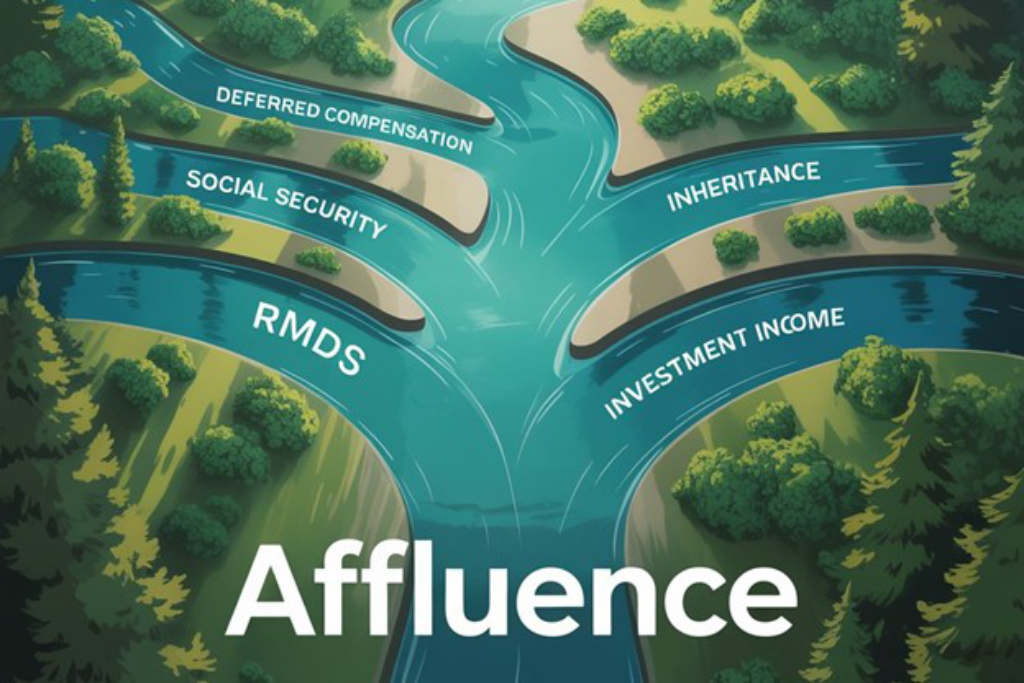The Power of the PENsion: Reality and Resolutions – Guaranteed Retirement Income

photo credit Unsplash
The Reality
Americans have experienced in recent years: a worldwide pandemic, inflation, interest rate increases and geopolitical issues. There is a general feeling of unease. Add to that baseline the anxiety that workers report (up 33% in 2023[i]) concern about their jobs, their earnings, and their future financial security.
According to a 2023 study by the Alliance for Lifetime Income[ii], more than half (51%) of consumers between 45 and 75 feel they do not have enough retirement savings to last their lifetime, and 32% are not confident they will have enough to cover basic monthly expenses. This has given rise to a growing demand for guaranteed income during retirement.
Recently, we’ve witnessed IBM make wholesale changes in their benefit plans, returning to a more traditional retirement benefit account (RBA, essentially a pension plan) from a 401(k) match. Effective January 2024, IBM is putting 5% into a retirement benefit account (RBA, essentially a pension plan), that will pay 6% interest through 2026. After that, the RBA will earn a rate equivalent to the 10-year U.S. Treasury yield, with a 3% per year minimum through 2033.[iii] Under this new plan, employees will get a guaranteed rate of return. This guarantee could be more attractive to retirement savers despite the possibility that the rate of return could be lower than what more aggressive investing might earn them.
Even in the defined contribution space, employees are seeking out 401(k) options that provide guaranteed payouts at retirement. According to Rich Swanner (CPFA, QKA), advising Highland DC Plan clients, “You don’t see a single industry event agenda today that isn’t heavy on this topic, and the same applies to webinars offered by the credential-issuing organizations and recordkeepers—and all of this is filtering into retirement plan committees’ field of vision. Despite fits and starts over a decade: this issue is very much here and now and is likely going to get bigger by an order of magnitude.”
The Resolution
Bottom line: retirement savers express that they want security. In the Employee Benefit Research Institute’s 2023 Retirement Confidence Survey, almost three-quarters of workers surveyed say they would prioritize income stability over wealth maintenance.[iv] More than half of this same group expect to have a product that guarantees monthly income for life as a source of retirement income.
A guaranteed future income might reduce stress and contribute to participants’ peace of mind. With growth in the number of retirees, this interest is likely to grow. In a world of uncertain outcomes, retirees are looking for security. Guaranteed retirement income is a place many near and current retirees are looking.
[i] https://www.fastcompany.com/90998248/layoff-fears-burnout-rto-anxiety-glassdoor-workplace-word-year-2023
[ii] https://www.protectedincome.org/wp-content/uploads/2023/08/PRIP-2023-Chapter-1-Report.pdf
[iii] https://www.ibm.com/downloads/cas/NVRQKBB1
[iv] https://www.ebri.org/docs/default-source/rcs/2023-rcs/2023-rcs-short-report.pdf
Highland Consulting Associates, Inc. was founded in 1993 with the conviction that companies and individuals could be better served with integrity, impartiality, and stewardship. Today, Highland is 100% owned by a team of owner-associates galvanized around this promise: As your Investor Advocates®, we are Client First. Every Opportunity. Every Interaction.
Highland Consulting Associates, Inc. is a registered investment adviser. Information presented is for educational purposes only and is not intended to make an offer of solicitation for the sale or purchase of specific securities, investments, or investment strategies. Investments involve risk and unless otherwise stated, are not guaranteed. Be sure to first consult with a qualified financial adviser and/or tax professional before implementing any strategy discussed herein. Past performance is not indicative of future performance.



